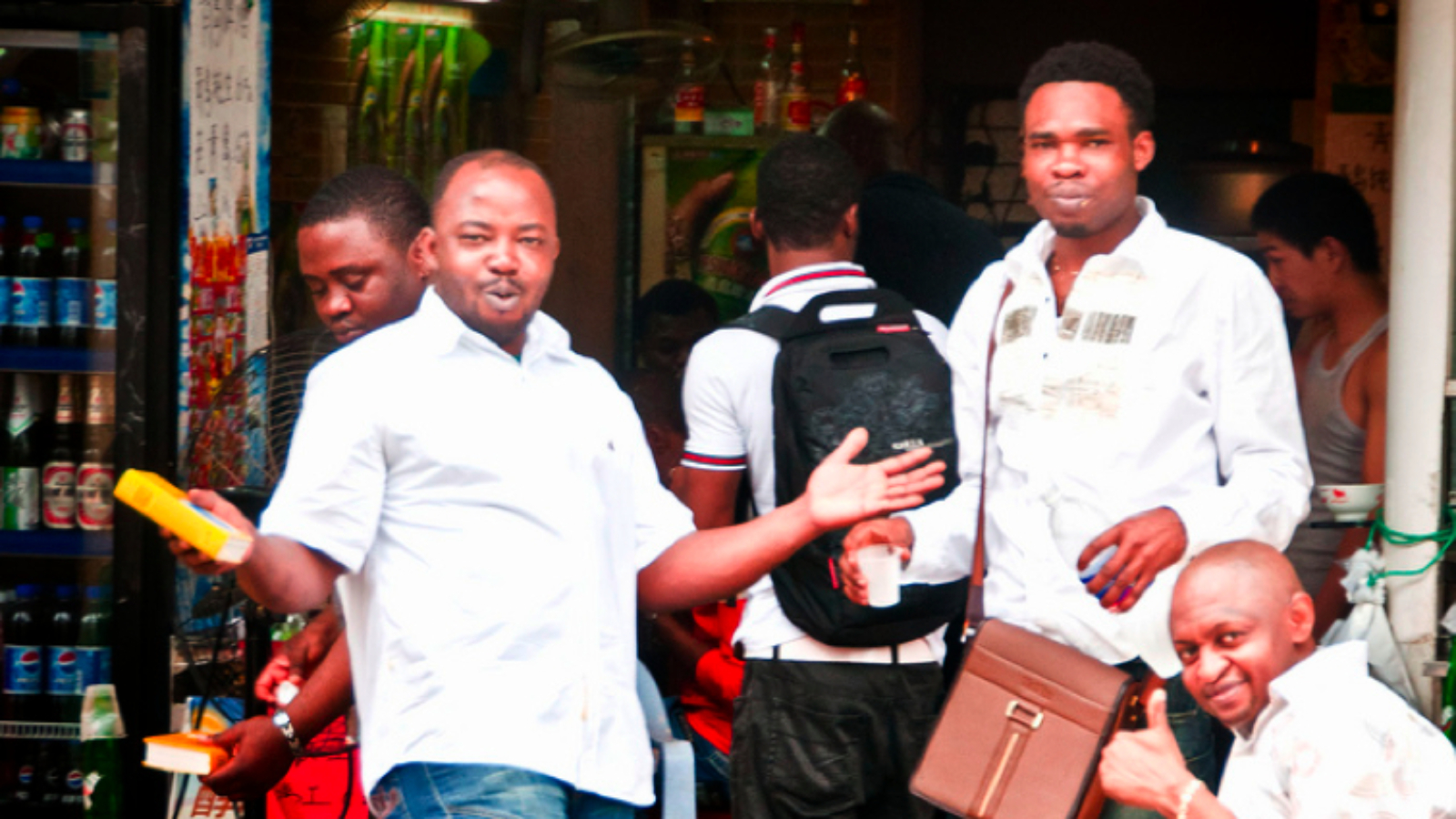This article originally appeared on The Mantle.
By Shirley Zhao
As the organ burst into a solemn anthem, and the choirmaster accompanied it with her crystal voice, all the chandeliers and candelabra sconces suddenly lit up simultaneously, like torches of golden fire – the mass began. In a second, the Catholic cathedral in Guangzhou, the largest city in southern China, was flooded with streams of flaming light and dancing gem-like colors projected on the walls from the stained glass windows.
As many as 800 worshippers, of whom 80 percent were Africans, sang or hummed together with the choir in a low but strong voice. The echoes swelled and rolled through the hollow cathedral, and every column, every arch, seemed alive with this praise and devotion.
Some of the worshippers sank to their knees, closed their eyes, and sang with their chins resting upon folding hands. Some sat meditating. Some buried their heads into their palms. Even many Chinese visitors who might know little about mass stopped chatting or photographing, and listened attentively.
“Oh Jesus,” an African young man gasped almost inaudibly. He grasped a cross pendant with a silver chain in his right hand, weeping in silence so intensely that he had to wiped away his tears every few seconds.
Every Sunday afternoon at 3:30 in the Sacred Heart Cathedral, hundreds of Africans living and working in Guangzhou will come for mass. After mass, most of them will move out to the cathedral grounds and chat with each other merrily under the shades of the trees or in an adjacent hall.
“Praying is the most important part of my life here,” said Vincent, a decently-dressed 25-year-old Nigerian businessman. “I feel relieved in the church. I feel protected.”
The Guangzhou Academy of Social Sciences, a government-directed research organization estimated that there are some 20,000 legal African residents in Guangzhou. But it is believed among local media that around 200,000 Africans now live in Guangzhou, legally or illegally. Most of them do business in a bustling 10-square-kilometer area in northern Guangzhou with webs of major highways, flyovers, underpasses and metro lines, and multi-story trading complexes and the major train station in the city.
The locals call their enclave the “chocolate city.”
The African population in Guangzhou began to increase in 1998, when the Asian financial crisis drove many African traders from Thailand and Indonesia to search for more opportunities in China. With the flood of imported “made-in-China” goods into the African market, China’s name as a world factory began to spread. Guangzhou, a trading center of all kinds of consumer goods, is what the African traders are looking for.
“There are many factories and resources around,” said Vincent. “I can always find what I want in the markets.”
Vincent came to Guangzhou in 2009. He works in Canaan Export Clothes Trading Center whose customers come majorly from Africa. Every day, he orders clothes from the manufacturers to be delivered to his family, who will sell them in Nigeria at much higher prices. He said most Nigerians in this city are doing the same kind of business.
“65 percent of goods in my country are imported from China,” he said. “They sell well. We can make good profit.”
But living in Guangzhou is becoming harder for Africans. Li Zhigang, a professor of the Department of Urban and Regional Planning of Sun Yat-sen University in Guangzhou, said with the currency inflation, the rising prices of goods and a strict visa policy, the summit of Africans coming to Guangzhou has passed.
China’s government started to tighten its visa policy in recent years. Now Nigerians can only get visas for no longer than three months. Visa renewals are also difficult and expensive.
“It’s almost impossible to get a visa extension,” said Vincent. He has to turn to an agent and pay RMB 15,000 ($2,274) to RMB 20,000 for a one-year extension.
Many who cannot get their visas extended have to stay illegally. In 2009, the local police began to crack down the so called “triple-illegal people” – illegal to enter, illegal to reside, and illegal to work. They raided the buildings where Africans were doing business and asked for their passports.
After a police raid that year, around 100 Africans gathered outside a local police station and protested against the raid which made two Nigerians jump out of the building from the second floor and suspiciously died. The police said there was no death.
“They chase us like we are criminals,” Vincent complained. “They stop us on streets, check our passport. They rush into where we work. In other countries, all the police are polite, but the police here are rude.”
Despite that, Vincent said Guangzhou is still the best place to do business. “One day if I can have more chances in another place, I’ll leave.”
There are reports from some local media that the number of crimes committed by Africans is rising. Guangzhou Daily, a state-run newspaper often reported the arrests of Africans on fraud, robbery and drug-trafficking.
“Some of us did bad things,” said Joseph, another Nigerian trader. “They damaged our image. We need to deal with it."
Shirley Zhao (趙曉瑩) is a journalism student at Hong Kong Baptist University focusing on international news reporting.
